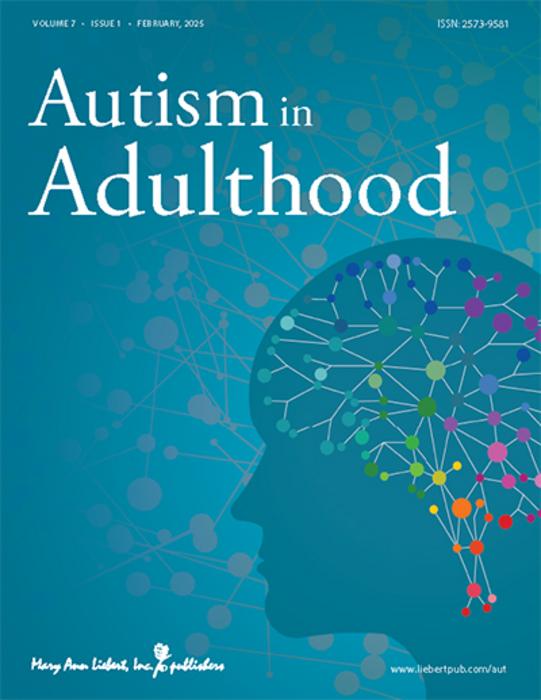Guidelines for Enhancing Accessibility in Research for Autistic Adults: A Call to Action
In an age where inclusivity and diversity are at the forefront of social discourse, a recently published study in the journal, Autism and Adulthood, highlights critical advancements in making research participation more accessible for autistic adults. The article presents comprehensive guidelines designed to revamp consent materials and procedural protocols that cater specifically to those on the autism spectrum and individuals with intellectual disabilities. Co-authored by Kelly Beck, PhD, from the University of Pittsburgh, alongside the Working to Increase Inclusivity in Research Ethics (WIRE) Consortium, this groundbreaking work provides a lens through which researchers can reevaluate their approaches to consent processes.
The significance of this article lies in its emphasis on the necessity for participatory methods, which foster not only better understanding but also enhance the ethical rigor of research involving marginalized populations. Traditional consent materials have often been criticized as overly complex and inaccessible, creating barriers that hinder the ability of autistic individuals to fully engage in research. Acknowledging these shortcomings, the authors assert the importance of presenting information using a variety of modalities, including auditory and visual aids, to ensure accessibility for a diverse demographic.
As the article aptly notes, consent procedures are frequently laden with jargon and intricate language that can alienate potential participants. "Our guidelines emphasize the importance of multiple modes to deliver content," remarked the authors, which directly addresses the challenge of designing effective communication strategies that accommodate a spectrum of processing and communication differences inherent in autistic adults. This advancement not only benefits participants but also enriches the quality and integrity of research outcomes.
The implications of these findings resonate profoundly within the scientific community. Rebecca Flower, PhD, Executive Editor of Autism in Adulthood, emphasizes the value of incorporating these guidelines into the practices of researchers. By doing so, researchers can cultivate an environment of respect and understanding, ultimately leading to research that is both ethically sound and methodologically robust. This transformative approach acknowledges the voices of individuals who have historically been underrepresented in research paradigms.
In addition to addressing consent materials, the article also underscores the necessity of ongoing training for research staff. Researchers must be equipped with the knowledge and skills to interact effectively with participants who may possess unique communication needs. This training is paramount, as it fosters a culture of inclusivity and nurtures an awareness that transcends mere compliance with ethical standards.
Moreover, the study urges researchers to consider the broader implications of their work. By improving accessibility, researchers not only adhere to ethical standards but also enhance the generalizability of their findings. Increased participation from a wider demographic ensures that research outcomes reflect a more comprehensive understanding of the autism spectrum, thereby informing policy and practice more effectively.
Another critical aspect discussed in this research is the collaborative potential between researchers and the autistic community. Engaging with autistic individuals during the design and implementation phases of research can yield invaluable insights that enhance the relevance and applicability of the findings. This collaborative model challenges the conventional hierarchies often seen in research settings and promotes a more democratic approach to knowledge production.
For those unfamiliar with the landscape of research involving autistic individuals, it is crucial to recognize that the guidelines outlined in this study are not merely theoretical musings; they are grounded in empirical evidence and real-world experiences of participants. The authors describe lessons learned across multiple U.S. research institutions, providing concrete examples of how adopting these inclusive practices can lead to improved outcomes.
While the article focuses on the autism spectrum and intellectual disabilities, its implications extend to wider discussions about research ethics, inclusivity, and community engagement. As the scientific community grapples with the nuances of conducting research in an ethically responsible manner, this study serves as a beacon for future endeavors aimed at dismantling barriers to participation.
Ultimately, the research presented in Autism and Adulthood urges a paradigm shift in how academia views its responsibilities toward those it studies. Rather than approaching research as a unilateral endeavor, it invites a collaborative spirit where the experiences of individuals with autism are regarded as vital contributions to the discourse.
As more scholars adopt these guidelines and recognize the value of participant inclusivity, we may witness a ripple effect across various fields of research. The potential for a richer understanding of the complexities of human experience hinges on the willingness of researchers to embrace practices that prioritize accessibility and respect.
In conclusion, the article articulates a strong vision for the future of research involving autistic individuals. The melding of ethical guidelines with practical application offers a promising avenue for fostering more inclusive research environments. As the academic community mobilizes around these principles, it heralds a new era where the voices of marginalized populations are not only heard but actively shaped into the research narrative.
Subject of Research: People
Article Title: Guidelines for the Creation of Accessible Consent Materials and Procedures: Lessons from Research with Autistic People and People with Intellectual Disability
News Publication Date: 19-Feb-2025
Web References: Link to the article
References: Autism and Adulthood
Image Credits: Mary Ann Liebert, Inc.




